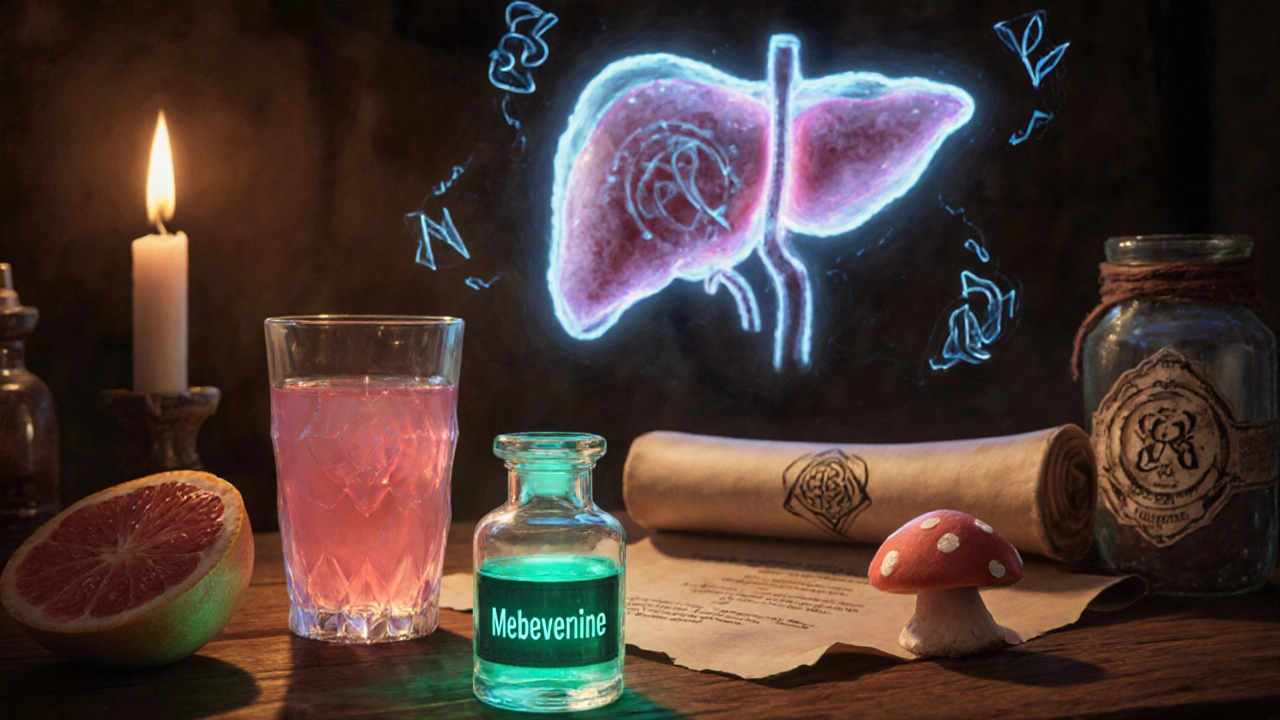Mebeverine and Grapefruit: What You Need to Know
When working with Mebeverine and Grapefruit, the combination of the antispasmodic drug mebeverine and grapefruit juice, which can change how the drug is processed in the body. Also known as mebeverine‑grapefruit interaction, it may affect the drug’s strength and safety.
First, let’s look at Mebeverine, an oral antispasmodic used mainly for irritable bowel syndrome (IBS) symptoms like cramps and urgency. It works by relaxing the smooth muscles of the gut without affecting the brain. People who take mebeverine often rely on it for daily comfort, especially when stress triggers gut spasms. Grapefruit juice, a popular citrus drink that contains compounds able to block certain liver enzymes, is famous for causing drug‑interaction warnings. Those compounds, especially furanocoumarins, can slow down the enzyme CYP3A4, which is responsible for breaking down many medicines, including mebeverine.
Why the Interaction Matters
The key player here is CYP3A4, a liver enzyme that metabolizes a wide range of drugs. When grapefruit juice inhibits CYP3A4, the clearance of mebeverine drops, leading to higher blood levels. Higher levels can mean stronger relief for some, but they also raise the risk of side effects such as dizziness, dry mouth, or even abnormal heart rhythms. In clinical terms, the relationship can be expressed as a semantic triple: "Mebeverine and Grapefruit interaction involves CYP3A4 inhibition". Another triple: "Grapefruit juice influences drug metabolism". And a third: "Higher mebeverine exposure may increase adverse effects". Together, they show why doctors caution patients about mixing the two.
Beyond the enzyme, the overall drug interaction, any change in a drug’s effect caused by another substance can affect dosage decisions. If you regularly drink grapefruit juice, your doctor might lower the mebeverine dose or suggest an alternative antispasmodic like hyoscine. Some patients choose to avoid grapefruit entirely, opting for orange or apple juice, which have minimal impact on CYP3A4. The practical takeaway: always mention your juice habits during pharmacy visits.
Another angle to consider is timing. Even a single glass of grapefruit juice can affect CYP3A4 activity for up to 24 hours. Splitting the dose—taking mebeverine in the morning and grapefruit later in the day—doesn’t fully prevent the interaction because the enzyme remains partially blocked. The safest route is to keep the two separate by diet choice, not just timing.
In real‑world scenarios, patients report mixed experiences. Some notice stronger symptom control when they accidentally combine grapefruit with mebeverine, while others feel more side effects. The variability comes from genetic differences in CYP3A4 expression and how much grapefruit they consume. This explains why guidelines use cautious language like "avoid grapefruit" instead of "moderate use is OK".
What does this mean for you? If you have IBS and are prescribed mebeverine, ask your pharmacist about grapefruit. Keep a short food diary for a week to track any citrus intake. If you love grapefruit, discuss alternative medications that aren’t metabolized by CYP3A4. And remember, the interaction isn’t limited to mebeverine—many other drugs share the same pathway, so the habit of checking grapefruit warnings can protect you across the board.
Below, you’ll find a curated selection of articles that dive deeper into the science, share patient stories, compare treatment options, and give step‑by‑step advice on managing this interaction safely.
Learn which foods, drinks, and medications can affect mebeverine, how the liver enzyme CYP3A4 plays a role, and practical steps to prevent unwanted interactions.

 Pharmacology
Pharmacology